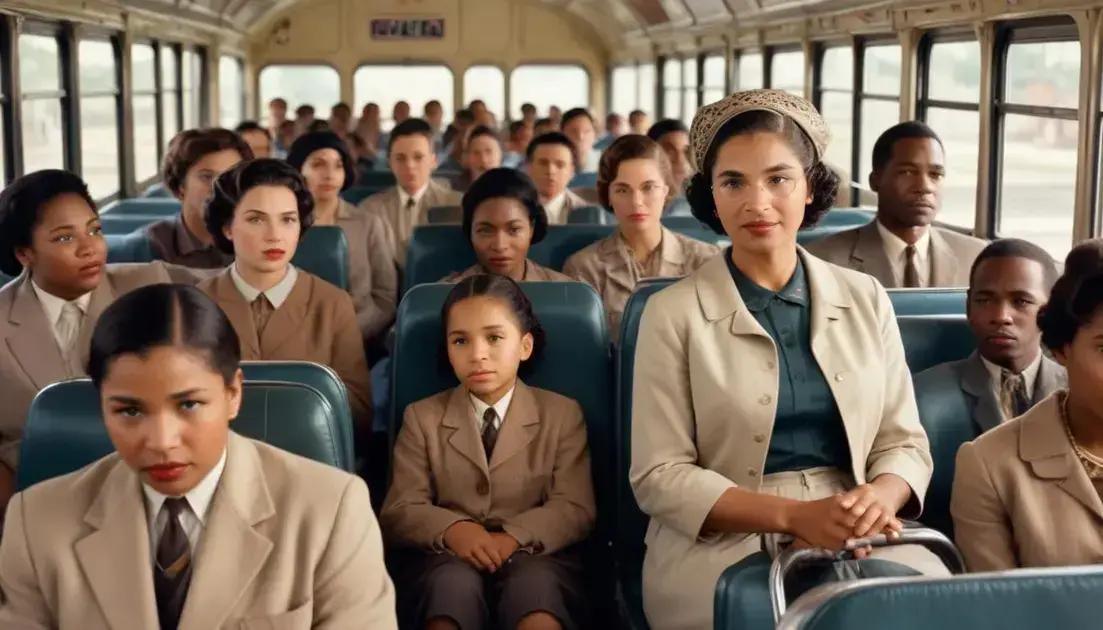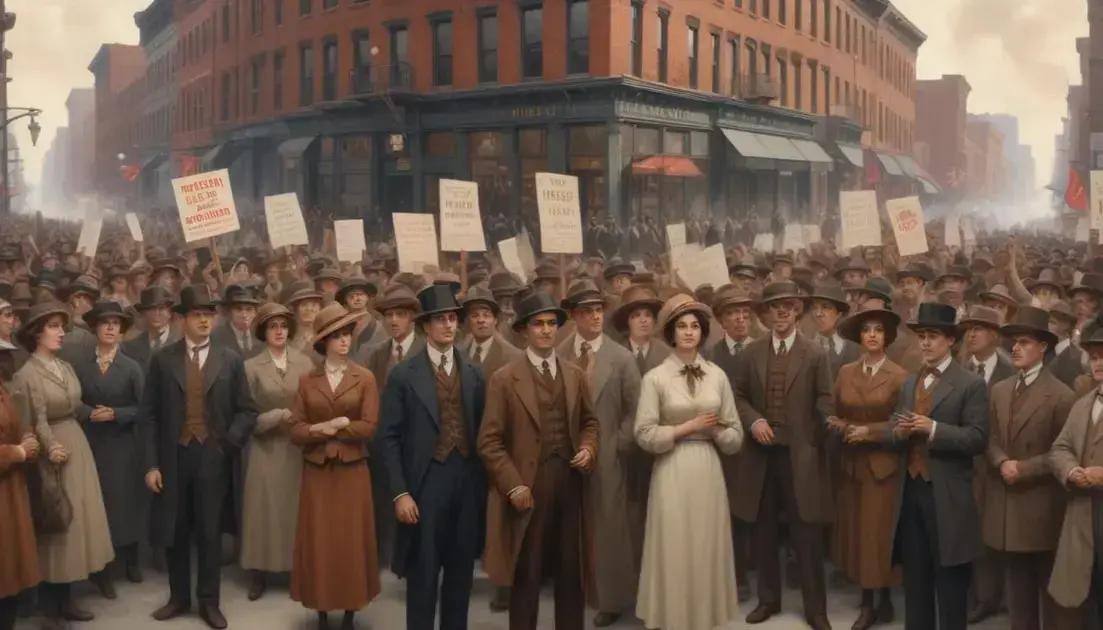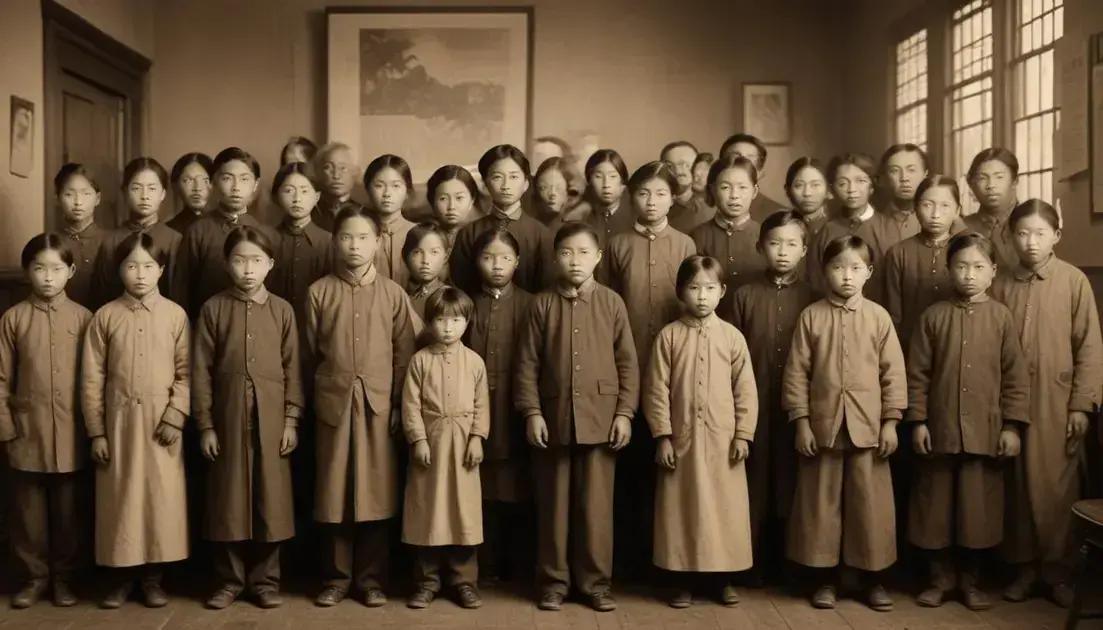
Rosa Parks: The Gesture That Moved a Nation
Rosa Parks was a pivotal figure in the civil rights movement, known for her courageous refusal to give up her bus seat in Montgomery, Alabama. This act of defiance led to the Montgomery Bus Boycott, a significant protest against racial segregation. Her bravery inspired many others to join the fight for equality, leading to substantial changes in civil rights laws. Rosa’s legacy lives on through ongoing efforts for justice, highlighting the importance of unity, nonviolent protest, and the power of individual actions in promoting social change.
Ever wonder how a simple act of defiance, like Rosa Parks refusing to give up her bus seat, could spark a nationwide movement? It’s incredible how one moment can change history.
The Life of Rosa Parks
Rosa Parks was born on February 4, 1913, in Tuskegee, Alabama. She grew up in a time when racial segregation was common. From a young age, she experienced the harsh realities of discrimination and injustice. Her family played a significant role in shaping her commitment to civil rights.
In 1932, Rosa married Raymond Parks, who was actively involved in civil rights. Their partnership fueled her passion for social justice. Throughout the years, she became more engaged in community activism and joined organizations like the NAACP.
On December 1, 1955, Parks made history by refusing to give up her bus seat to a white passenger in Montgomery, Alabama. This act of defiance led to her arrest. However, it also ignited the Montgomery Bus Boycott, a pivotal moment in the fight for civil rights.
Rosa’s decision to stand firm inspired many others to join the cause. She became a symbol of resistance against oppression and inequality. Her courage resonated across the nation and fueled further action for civil rights.
After the boycott, Parks faced challenges. She lost her job and faced threats against her life. Nevertheless, she continued her work as an activist. Rosa Parks traveled, speaking about civil rights and equality.
Rosa Parks passed away on October 24, 2005, but her legacy lives on. Today, she is celebrated as a hero who sparked a movement and inspired generations to fight for justice and equality.
The Montgomery Bus Boycott
The Montgomery Bus Boycott began on December 5, 1955. It lasted more than a year and was a key event in the civil rights movement. The boycott started after Rosa Parks refused to give up her bus seat to a white person. Her arrest sparked outrage among the black community in Montgomery, Alabama.
Local leaders quickly organized the boycott. They aimed to end segregation on public buses. The community supported this cause by refusing to ride the buses. Instead, many walked or carpooled to work. This showed the power of unity and determination.
The boycott gained national attention. It highlighted the struggles faced by African Americans in the South. Many people across the country supported the boycott by donating money and providing rides.
During the boycott, the leaders faced many challenges. Some were threatened and harassed. Many boycott participants lost their jobs or faced violence. Yet, the community remained strong and committed to the cause.
After over a year of protest, the US Supreme Court ruled that segregation on public buses was unconstitutional. This victory was a significant step forward for the civil rights movement. The boycott not only changed bus policies but also inspired other civil rights actions across the nation.
The Montgomery Bus Boycott showed that collective action could lead to real change. It became a model for future protests. The bravery of those involved continues to inspire people today.
Impact on the Civil Rights Movement
The impact of Rosa Parks and the Montgomery Bus Boycott on the civil rights movement was huge. It showed that ordinary people could challenge injustice. Rosa Parks’ bravery inspired many others to act against segregation and racism.
After the boycott, many groups formed to fight for civil rights. Organizations like the Southern Christian Leadership Conference (SCLC) and the Student Nonviolent Coordinating Committee (SNCC) emerged. These groups worked together to organize protests, sit-ins, and voter registration drives.
The boycott also helped leaders like Martin Luther King Jr. rise to prominence. King’s philosophy of nonviolent resistance became a key strategy for the movement. His speeches inspired people to stand up for their rights peacefully.
As a result of these efforts, the civil rights movement gained national attention. Media coverage highlighted the struggles of African Americans. This made more people aware of the issues and motivated others to join the fight for equality.
Federal legislation followed, including the Civil Rights Act of 1964. This act made discrimination illegal in many areas, like schools and public facilities. The efforts during this time were vital in paving the way for future reforms.
Rosa Parks’ actions proved that change was possible. Her legacy continues to inspire new generations to fight for justice and equality.
Legacy and Recognition
Rosa Parks’ legacy is remarkable and continues to inspire people today. After her courageous stand against segregation, she became a symbol of the civil rights movement. Her act of defiance motivated others to fight for equality.
Over the years, Parks received numerous honors and awards. In 1996, she was awarded the Presidential Medal of Freedom, one of the highest civilian honors in the United States. This award recognizes her role in advancing civil rights and justice.
In 2005, Rosa Parks passed away. Her legacy, however, lives on through the many organizations and movements inspired by her work. Streets, parks, and schools across the country are named in her honor.
Even today, her story is taught in schools. It reminds students of the importance of standing up for what is right. The Rosa Parks story is a powerful example of how one act can lead to significant change.
Each year, events and memorials celebrate her contributions. The National Park Service designated her former home in Detroit as a national historical site. This site educates visitors about her life and legacy.
Rosa Parks’ commitment to justice and equality remains an inspiration for many. Her life encourages new generations to continue the fight for civil rights.
Lessons for Today
The story of Rosa Parks and the civil rights movement teaches us valuable lessons for today. One key lesson is the power of taking a stand. Rosa’s refusal to give up her seat showed that individual actions matter. Every person has the ability to create change.
Another lesson is the importance of unity. The Montgomery Bus Boycott succeeded because the community came together. People from all walks of life supported the cause. Working together can bring about powerful results.
Nonviolent protest is also essential. Rosa Parks and her fellow activists showed that change can happen without violence. Peaceful methods attract more supporters and reduce conflict. This approach can be used in many issues today.
Education plays a vital role as well. Learning about civil rights helps us understand our history. It reminds us to stand against injustice and support equality for all. Schools can teach students about the struggles faced by people like Rosa.
Lastly, staying engaged is important. Today’s world still has issues of inequality and injustice. It’s crucial to speak up against discrimination and advocate for change. Just like Rosa Parks, everyone can contribute to creating a fairer society.
Conclusion
In conclusion, the story of Rosa Parks and the civil rights movement teaches us important lessons about courage and unity. Her simple act of defiance sparked a powerful movement that changed history. It shows that one person’s actions can inspire many others to stand up against injustice.
Today, we must remember the importance of taking a stand. Working together can create real change in our communities. Nonviolent actions continue to be a strong tool for fighting inequality. We all play a part in promoting justice and equality for everyone.
As we reflect on Rosa’s legacy, let’s commit to being aware and engaged. Speaking out against discrimination is vital. We each have the power to make a difference in the world. Together, we can honor her memory by continuing the fight for fairness and justice for all.


